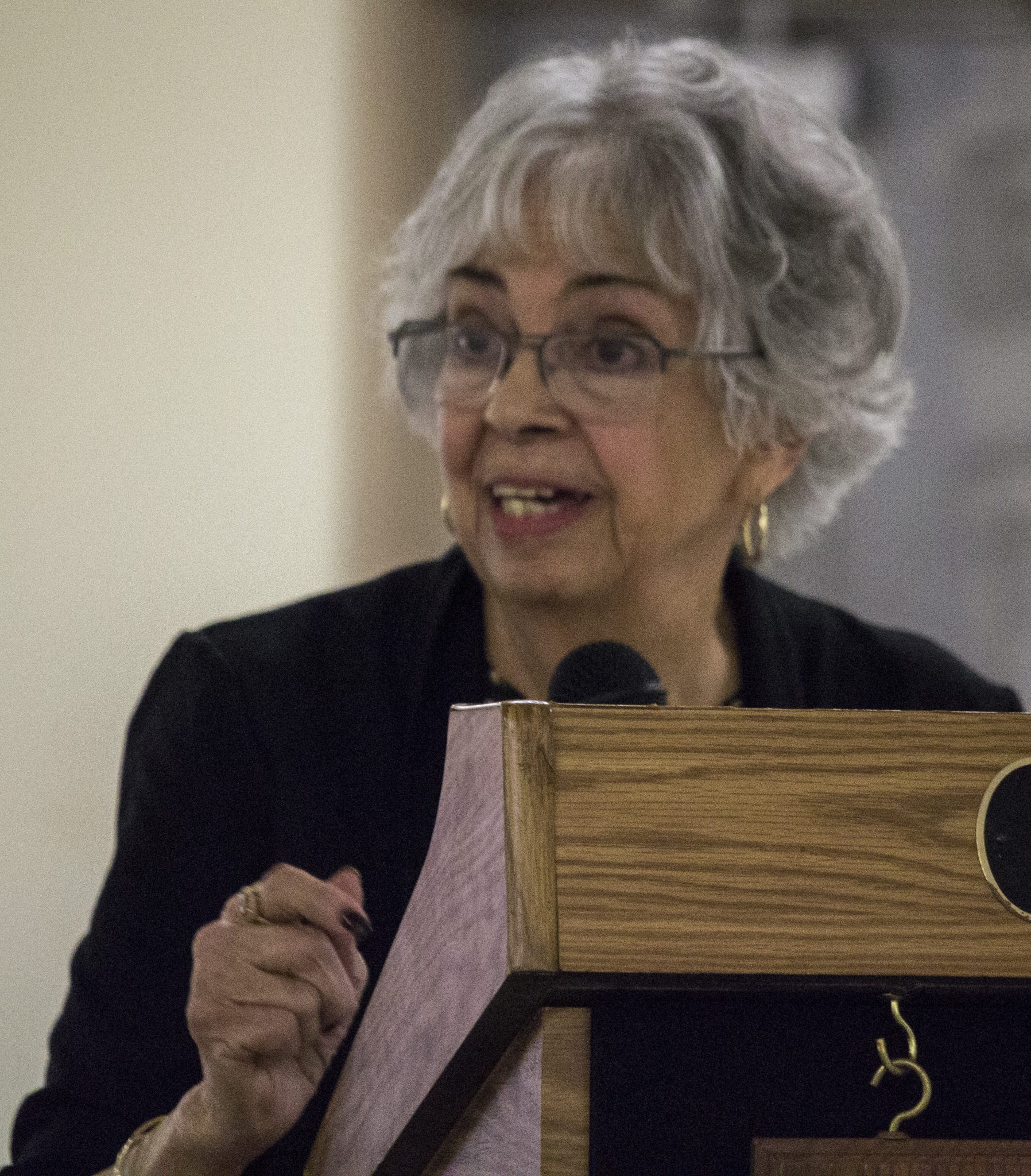Shedding light and a new perspective on one of America’s most accomplished historical figures, the Bordentown Historical Society served as the host to a discussion on James Monroe Gregory.
Gregory was the former principal of the Bordentown Manual Training and Industrial School (MTIS).
The event was held at Bordentown Township Senior Center on March 30, where attendees were treated to a biographical lecture and first-hand family perspectives of Gregory’s life from his granddaughter, Sheila Gregory Thomas.
The discussion was held as part of the Bordentown Historical Society’s recent exhibition series, “Untold Stories: Achieving Furthered Expectations,” which aims to explain Bordentown’s past educational institutions that had an impact on the widespread practice of segregation at a local level.
The exhibition series has already held multiple showings and programs about two particular Bordentown institutions: the Historical School No. 2 and the Manual Training and Industrial School, which was a statewide boarding school located south of town and operated from 1886-1955.
Gregory, who took helm of the Bordentown institution in 1897, was said to have endured much success as principal of the facility as he grew enrollment and improved the overall quality of life at the school during his tenure.
Although Thomas said she had extensively researched and written about the life of her grandfather before, she said that the historical society event was the first time she had ever spoken about him in a public setting.
After Thomas noted that she was told there were commemorative activities going on in Bordentown regarding the history of MTIS, she said she was asked if she would be interested in coming to talk about her grandfather’s tenure at the institution.
Given that there was limited history known about MTIS to Bordentown residents before the historical society embarked on this exhibition series, Thomas pointed out that she’s the only remaining family member left of her five siblings five, so coming to talk about her grandfather’s storied past held much significance to her as well as its contribution to the better understanding the area.
“I do it because I think people need to be aware of how the present MTIS came to be – as it developed,” Thomas said. “A lot of people don’t know about my grandfather, and they consequently do not know the history of the school, so I want to make it clear that there is some history here that is unknown to most people and to pay tribute to my grandfather for what he had accomplished. He was very important in building the school up when it was in disrepair.”
As Thomas’ lecture kicked off, she spent a portion of discussion by highlighting multiple accomplishments in Gregory’s accomplished life, such as him being a first class graduate from Howard University in 1872; he secured the very first appropriations for the university from Congress, which totaled a sum of $10,000; was secretary of a committee organized by Frederick Douglass that called for a National Convention of Colored Americans in 1883; and in 1890, founded the American Association of Educators of Colored Youth and was later elected president [of the association] and served for eight years.
“He was always committed to the education of young people – education of black people,” Thomas said.
As Gregory eventually arrived at MTIS in Bordentown in 1897, the school was in major disrepair, located in three frame houses on West Street with less than 10 students enrolled.
Gregory worked with state officials to acquire a new site for MTIS and eventually became its second principal.
“He saw this place overlooking the Delaware River that nobody was in,” Thomas said. “He succeeded in having the state legislature appropriate funds for its purchase.”
Under Gregory’s oversight, the school began to take on its elegant appearance with cleaned buildings and grounds as well as having the building painted too.
Following Thomas’ discussion on her grandfather, she fielded several questions from attendees as the event came to a close.
With scheduled events in the upcoming weeks which coincide with the exhibition series, President of the Bordentown Historical Society Tim Rollender, explained the importance of lectures like this at the event to help better understand the area’s past.
“Overall, this has been an incredible experience working with different folks to understand and examine the Bordentown Manual Training and Industrial School and School No. 2,” he said. “This has been a huge opportunity for the Bordentown Historical Society to build out our records. We have only a few things in our archives relating to the school, so this is an opportunity to go out and speak with former graduates and friends of the school.”

